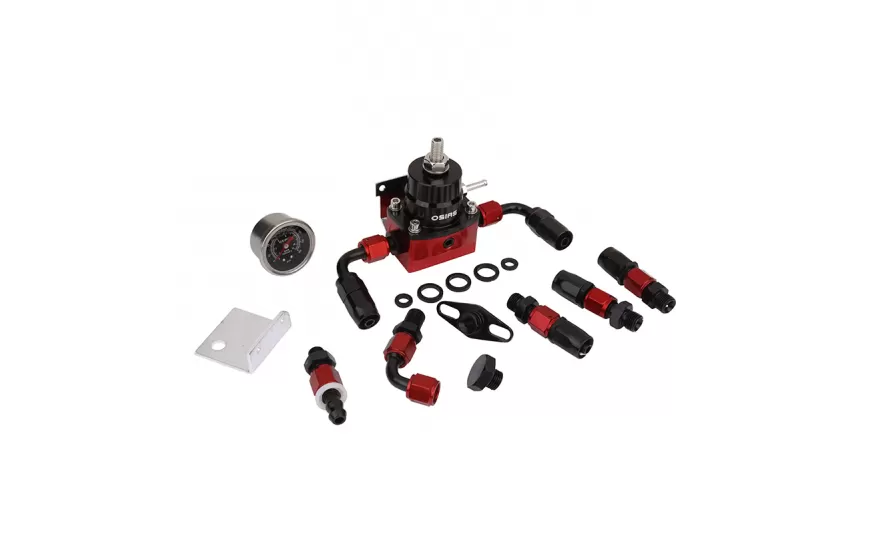
As we all know, the fuel pressure regulator is an important component of the automobile fuel system. It can accurately control the fuel pressure to ensure that the engine can get a stable and accurate fuel supply under various conditions, thereby affecting the normal operation and stable performance of the engine. It can be seen that the fuel pressure regulator has a very important impact on the performance of the engine. Next, the important role of the fuel pressure regulator is explained from the working principle and function of the fuel pressure regulator.
1. Working principle of fuel pressure regulator
The fuel pressure regulator contains a diaphragm inside, which controls the opening and closing of the pressure valve together with the spring and the vacuum degree of the air chamber. When the oil pressure is lower than a certain value, the pressure on the spring gradually decreases. At this time, the spring will push the diaphragm downward, the pressure valve is closed, and the oil pump increases the pressure in the oil circuit; when the pressure exceeds the specified value, the high-pressure fuel will push the diaphragm upward to open the pressure valve, and the over-pressure fuel will flow back to the fuel tank through the oil pipe, thereby reducing the pressure. In this way, the fuel can be stably and efficiently injected into the engine to ensure that the car can run smoothly.
2. The role of the fuel pressure regulator
Maintain a constant oil pressure difference: The fuel pressure regulator controls the fuel pressure in the fuel supply system to maintain a constant difference between it and the intake manifold pressure (usually between 250 and 300 kPa). This constant pressure difference is the key to the normal injection of the injector.
Buffering pressure fluctuations: The fuel pump will produce pressure pulsations when supplying fuel, and the intermittent injection of the injector will also cause pressure fluctuations. The fuel pressure regulator can buffer these fluctuations and ensure the stability of the pressure in the oil circuit.
Control the amount of fuel injection: The fuel pressure regulator adjusts the fuel pressure entering the injector according to the changes in the intake manifold pressure, so that the amount of fuel injected by the injector depends only on the opening time of the injector, thereby accurately controlling the amount of fuel injected by the engine.
Protect the engine: If the fuel pressure is too high, it may cause damage to the oil circuit or the injector; if the fuel pressure is too low, it will cause the injector to spray too weakly or not spray. The fuel pressure regulator prevents these situations from happening through the decompression effect and protects the normal operation of the engine.
OSIAS strongly recommends customers to purchase our complete fuel pump replacement kit, including fuel pump, regulator, all related lines and fuel filters, 100% brand new OSIAS original packaging, lifetime warranty to ensure your vehicle runs in the best condition. And we add a moderate amount of fuel injection on the fuel pressure regulator, without changing the computer fuel supply mode, to save a lot of money.
3. Summary
In summary, the impact of the fuel pressure regulator on engine performance is self-evident, therefore, regular inspection and maintenance of the fuel pressure regulator is one of the important measures to safeguard the performance of the engine and the car. If you encounter problems related to the fuel pressure regulator, you can always contact us, our business hours are Monday to Friday, 9:00 am to 5:00 pm Beijing Standard Time.












Write a comment